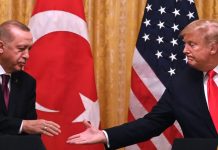The virtual summit between Chinese President Xi Jinping and US counterpart Joe Biden will not pave the road for progress on a wide range of nearly irresolvable differences although the continued dialogue is necessary to avoid military confrontations, analysts told Sputnik.
Xi and Biden during an online meeting Monday addressed several critical security issues – including the status of Taiwan, strategic stability, Afghanistan, Iran, and North Korea, among others.
The Chinese Foreign Ministry said Biden and Xi agreed in their conversation to maintain close ties in order to return Washington-Beijing relations to the “correct path of healthy and stable development.”
However, in a reversal in tone, White House National Security Adviser Jake Sullivan on Tuesday told reporters the United States would use its “full range of strengths” to stand up for American values in relations with China.
Meanwhile, a senior US administration official said Washington is not expecting a “breakthrough,” as a result of the talks, reinforcing the opinion among some analysts that not much will change.
“Jaw-jaw may be better than war-war, but in this case, it seems mainly irrelevant,” historian and political commentator Dan Lazare told Sputnik. “The US and China are locked in deep conflict on a half-dozen fronts or more, and I don’t see how three and a half hours of pleasantries can change something as intractable as that.”
US-China Clash
Biden told his Chinese counterpart that Washington adheres to the “One China” policy and does not support Taiwan’s independence while Xi warned that Beijing is ready to take decisive actions if separatist forces cross “the red line,” according to the Xinhua news agency.

Biden’s rhetoric, however, stands in stark contrast to US policies and actions. The US approved a $750 million military sale to Taiwan earlier this year and in 2020 Washington approved a total of $5 billion in arms sales to the region. In addition, earlier in November, a group of Republican lawmakers introduced legislation to provide $2 billion to bolster’s Taiwan’s defenses.
Lazare believes the problem is “one of perspective” and a fundamental clash of worldviews.
“Beijing says it needs room to grow and accuses the US of trying to bottle it up by engaging in provocative displays in the South China Sea and encouraging stepped-up hostility on the part of other countries in the region,” Lazare pointed out. “Washington says it ain’t so and that all it wants is to protect freedom of navigation while seeing to it that the status quo continues with regard to Taiwan.”
In return, Lazare added, the US is demanding China recognize American global hegemony.
“Xi can’t agree since he believes in a pluralistic worldview in which his country has as much right to assert its authority in its own coastal waters that the US does in, say, the Caribbean,” the political analyst said.
But the United States, Lazare added, rejects any such symmetry because it sees itself as the “world sovereign” that can make up the rules without following them.
“So it’s a clash between multi- and unipolarity that can only intensify,” Lazare predicted.
Unlike the old Cold War with the Soviet Union, he added, ideology is largely absent.
“Instead, what we’re presented with is a clash of power and will unlike anything we’ve seen since the Seven Years’ War [1756-1763]. Both countries need to forge ahead simply because neither can afford to back down,” Lazare said.
Moreover, Biden was desperate to re-establish US credibility after his Afghan debacle in August, and Xi had to appear tough because he was facing a major domestic crisis due to a slowing economy and an oversized real-estate market that was cracking wide open, Lazare said.
Hence, retreat is not an option, said Lazare, and thereby neither is compromise.
“So regardless of what Biden and Xi said to one another during [their] long Zoom call, the outlook is not good,” Lazare concluded.
Retired US Army Colonel and political commentator Ann Wright believes that despite lack of details on the talks, the two leaders should continue pursuing direct personal dialogue.
“My assessment is that dialogue is infinitely better than confrontation, particularly military confrontation,” Wright told Sputnik.
- Via Sputnik News Agency
- Follow EurAsian Times on Google News




